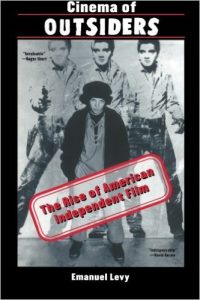My “New” Credo: New Movie Club
I am celebrating this year my first 50 years as as a film scholar, film critic, and author of nine books.
I began teaching film in 1975, while a grad student at Columbia University, due to the support and encouragement of my then mentors, Andrew Sarris at the Film School, and Peter Blau at the Department of Sociology.
My first film course, “History of American Cinema,” was offered at Hunter College of CUNY, and the only reason I got to teach it was by being asked to offer (in return?) “Introduction to Social Studies,” then a required course for all students of the Arts and the Humanities.
To celebrate my anniversary, my career manager has proposed to establish a New Global Movie Club, titled AMOUR: Abandoned, Misunderstood, Overlooked, Underestimated, Revisited Films.
With all my continuous, indefatigable support for seeing films in movie theaters, there are some advantages to be had in our ever-growing Streaming Age. Put it simply, movies now have a second, third, fourth lives, when streaming on the numerous platforms, going way beyond Netflix and company.
We critics (I include myself among them) often treat the directors of bad or mediocre or compromised films as the equivalents of the bad guys or heavies in westerns or crime-gangster sagas. In actuality, however, directors and other creatives (writers, actors) are often forced to compromise their original, purer artistic visions due to the operation of various forces beyond their controls.
Furthermore, films that are not immediate box-office successes (on opening weekend) are instantly branded as losers, flops, bombs, or as if they had never been made. This becomes almost like a self-fulfilling prophecy. Why would anyone smart bother to see a film that had been panned by some major critics, or released at the wrong time, i.e. opened on the same day as an Hollywood blockbuster (“Jurassic World,” “Superman, “Fantastic Four” anyone).
And what if a critic was “wrong” or underappreciative in his/her first assessment, as Pauline Kael often was. She famously panning the 1966 “Blow-up” (winner of Best Picture by the NSFC (of which he was a founding member???), and the 1981 “Shoah,” widely considered by all critics an epic masterpiece about the Holocaust.
These are all partial reasons for establishing AMOUR, an online worldwide movie club for cineastes, cinephiles, and young potential viewers, seeking to learn and know more about the world of cinema, arguably the richest, densest, most sensual, and most accessible art form, compared to theater, opera, painting, etc.
I hereby pledge to devote the second half a century of my career to the promotion of AMOUR.
Please join me, alongside with your family members, friends, colleagues, and followers in this indisputably well-intentioned effort!











